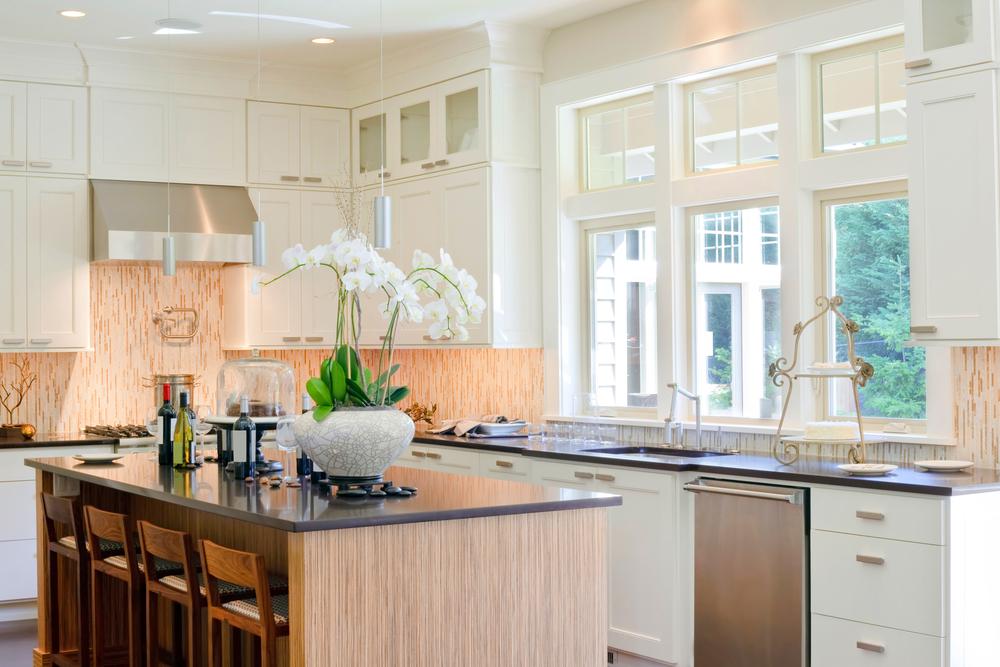Kitchen countertop material – pros and cons
Choosing the right countertop for your kitchen needs to pass through several filters aesthetics, budget, ease of installation being some of them. Before you decide upon the right work surface in your kitchen, it is important that you understand the advantages and disadvantages that each material presents.
Wood this classic countertop material presents several advantages:

Stone Stone surfaces are top choices for kitchen surfaces and are almost unmatched in their beauty and elegance. Several options exist granite, marble or soapstone. Their good looks and durability come at a considerable price but add to the overall value of your home. However, stone surfaces often are porous, and when not sealed properly, are likely to stain. Marble countertops are especially vulnerable to stains.
Tile Ceramic tiles are vastly cheaper than other natural options, and come in a variety of colors and designs. You could even lay them yourself if you are confident about it. Tiles are durable and heat-resistant, but the gaps between the tiles are going to invariably present a problem, especially on a countertop. This is not impossible to manage, really, especially when you consider the price difference.
Engineered stone These present all the advantages of stone great looks and strength while avoiding many of the disadvantages, such as porosity. While not as pricey as some of the high-end natural stones, engineered stones are not exactly cheap.
Synthetic material laminate and solid-surface countertops are quite popular as well, and the best thing about them is that they are budget-friendly. While not exactly as strong as natural material Solid surfaces present better durability than laminates and are easy to maintain. However, their main disadvantage is that they are, well, synthetic, and can end up looking a bit plasticky.
Metal steel, aluminum and copper countertops are a dream, and present unmatched strength and durability, which is why they are a standard feature in professional kitchens. On the flip side, metal requires maintenance, as corrosion and tarnishing is a problem. Moreover, they are almost always, very, very pricey.
As you can see, synthetic materials come cheap, have some maintenance advantages, but are not exactly coveted. The more natural the material, the better it is valued, and the price increases proportionately. On the one hand, a kitchen countertop is where all the action happens, and is worth serious investment which pays off in long-term benefits. On the other hand, it is important to look at the value for money spent and choose something that fits the budget, while still being sensible and classy.











